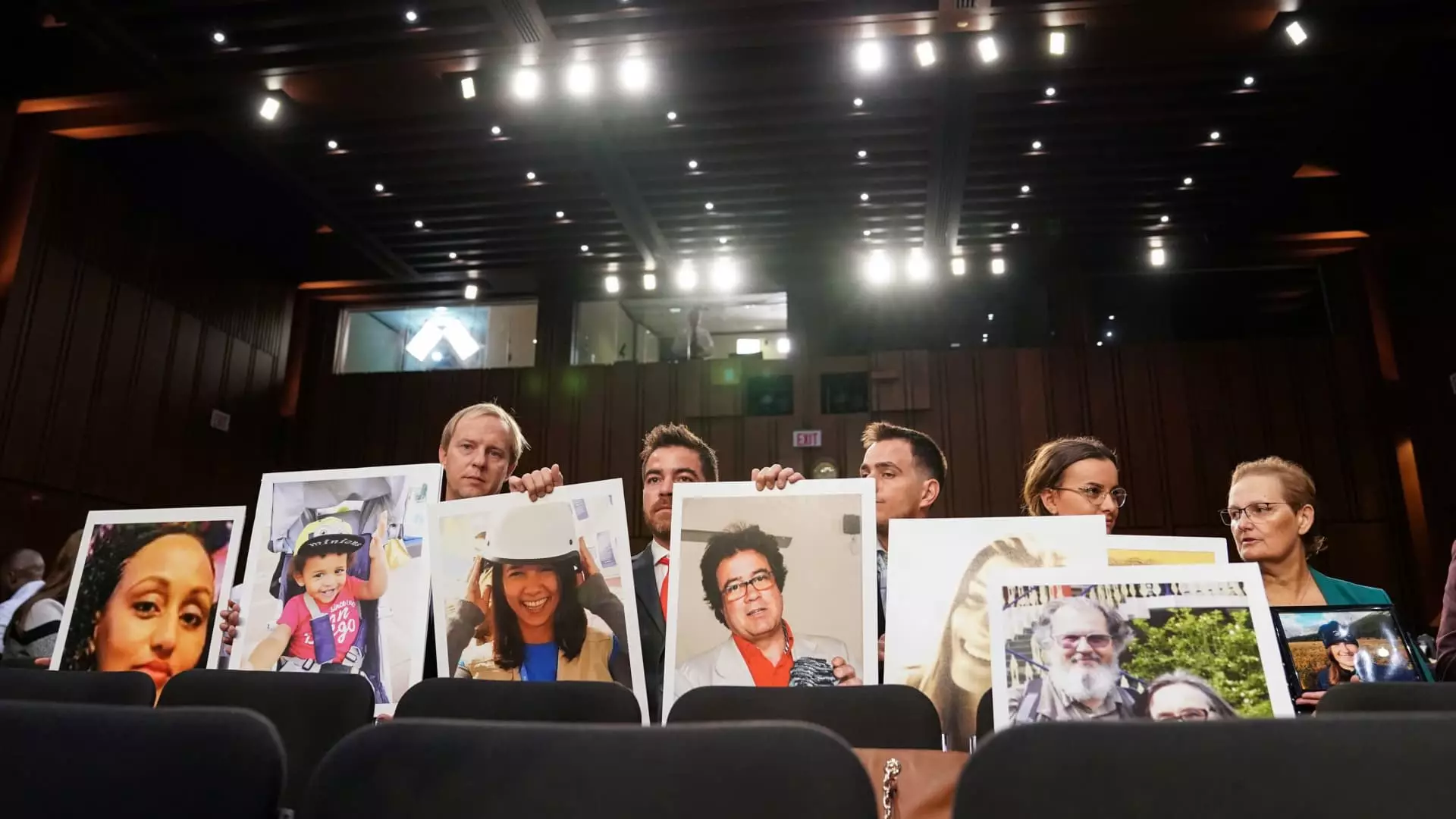In a shocking move that many see as a stark indictment of the U.S. justice system’s treatment of powerful corporations, the Department of Justice recently announced a non-prosecution agreement with Boeing following the harrowing crashes of two of its 737 Max planes, which resulted in the tragic loss of 346 lives. This agreement comes across as a disturbing signal—an indication that money can shield even colossal blunders from the glare of accountability. The deal allows Boeing to escape the dire consequences of its actions, a situation that raises questions about who truly bears the brunt of corporate negligence in this country.
Unpacking the Financial Aspects
Under the terms of this agreement, Boeing is set to shell out more than $1.1 billion, which includes a $487.2 million criminal fine and a significant investment in safety programs. On the surface, these figures may look substantial, but they pale in comparison to the potential damages and reparations owed to the families of the victims. The notion that a financial settlement can effectively absolve Boeing of moral culpability stinks of preferential treatment reserved for industry giants. Families grieving their loved ones are left to wonder if their pain was merely a bargaining chip in a larger financial negotiation.
While the DOJ claims this is a “fair and just resolution,” such language rings hollow to many. The idea that the government is willing to settle for monetary compensation instead of seeking justice in a court of law seems to manifest an unsettling trend where corporate interests supersede individual lives. The very nature of this agreement suggests that, in the eyes of the law, some companies are too big to fail—or, in this case, too big to face actually meaningful consequences for their failures.
A Coalition of Grief and Anger
Many family members of the crash victims have criticized the agreement for what they label as a “sweetheart deal.” They argue that this non-prosecution stance creates a dangerous precedent that may embolden other corporations to cut corners without fearing substantial repercussions. The loss of life is treated as a collateral damage in the ongoing lobbying efforts in favor of corporate welfare. The assertion from these families, supported by their attorney, how such deals are not only morally bankrupt but also legally questionable underlines a profound disillusionment with the justice system.
The reality is that these families were previously promised justice—an assurance that corporate negligence would face stern repercussions. Instead, they see a government consolidation around Boeing. Such dynamics create a credibility gap between the people and the system designed to safeguard their rights. What does it say about our values when victims’ families must fight for justice against an entity that appears in bed with regulators? The DOJ’s meeting with some relatives of the crash victims seems to serve as a mere rubber stamp on a decision that, by all accounts, is far from satisfactory for many.
A Troubling Pattern for Corporate America
Looking beyond this specific case, the Boeing settlement offers a glimpse into a larger, troubling pattern in corporate America where accountability is sacrificed at the altar of expediency and financial gain. In an era where corporations already wield tremendous power, this scenario pitches the scales even further in favor of the rich and influential. When the government prioritizes avoiding litigation risk over justice, what hope can everyday citizens have for equitable treatment?
Moreover, one cannot ignore the timing and context of Boeing’s major contracts with the government, including lucrative military contracts. The connection between Boeing’s ongoing governmental relationships and its ability to negotiate settlements raises questions about conflict of interest and regulatory oversight. Is the risk of corporate crime mitigated when a company can play the long game of lobbying and influence-peddling?
The Path Forward
The situation paints a problematic picture of a justice system that seems overwhelmingly skewed. It opens the door to speculation about whether those in power have the ability—or the will—to pursue justice for the ordinary citizens caught in the crossfire of corporate misadventure. The non-prosecution agreement reflects a broader malaise affecting corporate governance and regulatory accountability, urging us to rethink the ethics of corporate actions and the systems meant to hold them responsible.
In the end, we are left grappling with a disconcerting truth: as long as the interests of powerful corporations are placed above the lives of average citizens, we risk living in a society that prioritizes profit over moral rectitude and justice. The protests from the victims’ families echo a louder demand for systemic change that cannot be ignored.

